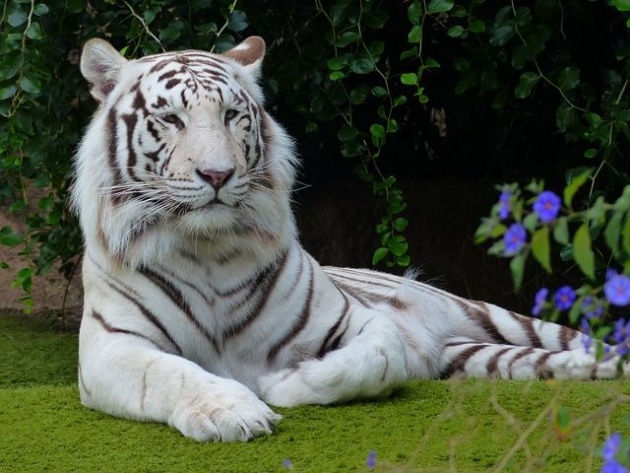
Exotic cats are beautiful, mesmerizing animals that offer numerous undeniable rewards for any exotic pet owner. A novice should never own an exotic cat. Exotic cats are often extremely active, many are excessively large, and ownership of every type is subject to the constantly changing laws of each state.
Large Amount of Food
A large amount of food, sometimes in the range of several hundred pounds, is required on a daily basis to sustain a healthy exotic cat. Specific fat, protein, and vitamin requirements vary for every type of exotic cat, often depending on the cat’s size and native origin. Only a professional exotic cat handler is able to provide the large amount of food required to sustain a healthy exotic cat.
Large Amount of Space
Several exotic cats, such as a Bengal tiger, grow to weigh over several hundred pounds, sometimes over a thousand. A large amount of space is required to accommodate daily living, exercise, and bathing. Planning the large amount of space required for an exotic cat is costly and requires a professional level of exotic cat knowledge.
Difficult to Transport
Many exotic cats are difficult, if not impossible, to transport. An exotic cat that weighs several hundred pounds requires a lot of time and labor to transport. It is also impossible to bring an exotic cat to a hotel or a relative’s house during a time of emergency, such as a natural disaster or mandatory evacuation.
Knowledge of a Professional
Several types of exotic cats grow to a weight of over nine hundred pounds yet retain the speed and agility similar to that of a domestic cat that weighs 10 pounds. In addition to understanding food and housing requirements, exotic cat knowledge of a professional is mandatory to guarantee the safety of both the animal and human.
State Laws Change
It is extremely important to remember that each state law regarding personal ownership of exotic cats may change without any warning. If a state suddenly declares ownership of an exotic cat illegal, the law will demand private exotic cat owners to donate their cat to a rescue facility. A zoo or theme park will only accept privately owned exotic cats if documentation is available that proves the animal's ‘pure lineage’. Exotic cat rescue facilities, such as the St. Augustine Wildlife Reserve, do not possess the ability to shelter every exotic cat during an extreme state law change.
Warning
NEVER release a captive exotic cat into a non-captive situation. Introducing an exotic cat into a natural area where that type of cat is not native will lead to disastrous results for local wildlife. If a state experiences an increase of exotic cats released into a non-captive situation, the outcome would be the passing of a new state law that bands the private ownership of exotic cats.
Types of Exotic Cats
- Bengal Tiger
- Bobcat
- Black Leopard
- Caracal
- Cheetah
- Clouded Leopard
- Lion
- Lynx
- Puma / Cougar / Mountain Lion / Panther
- Serval
- Snow Leopard
Copyright © 2016 John Mallozzi



